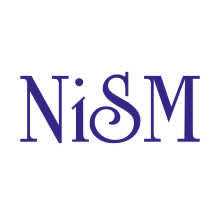- SSC Maha Pack
- SSC MTS
- SSC CHSL
- SSC CGL
- IB ACIO
- SSC Stenographer
- Delhi Police
- SSC GD
- UP Police
- IB Security Assistant
- DSSSB
- SSC Selection Post
- SSC Offline Exam
- RSMSSB
- CBSE
- BSF
- AAI
- SSC Books
- SSC Exams Books Kit
- Stenography Skill Set
- UP Police Constable
- Bihar BSSC Field Assistant
- CISF
- KVS Non Teaching
- Intelligence Bureau
- Army Ordnance Corps
- BSSC Inter Level
- SSC FREE CONTENT
- SSC CPO
- RRB NTPC
- Online Degree
- BIS
- AFCAT
- DFCCIL
- Railways Group D
- SSC JHT
- CDS
- DDA EXAMS
- UPSSSC PET
- Bihar Police Constable
- UPSC EPFO
NISM Preparation: Recorded Classes || Upskill & Learn with Ankur Sir | Video Course by Adda 247
- Get Access To The Top Expert Faculties Of India For Best PreparationExpert Faculties
- Get Access To Carefully Curated High-quality Content For Best ClarityHigh-quality Video Material
- Learn Anytime, Anywhere, And At Your Own Pace With Adda's VideosSelf Paced Learning
- Learn Across Devices, Compatible With Mobile, Tabs, And DesktopsDevice Compatibility


- Access to Carefully Curated Lectures by Top faculty
- High Quality Videos with Quality change & Playback Speed facility
- Doubt Solving on App, Telegram Groups & In Person at offline Centers
- Seminar & Topper Talks at Offline Centers
- In-Person Counseling, Physical Support Helpdesk at Offline Centers
- Planner, PYP & Preparation Tips over emails regularly
 NISM
NISM
This Course Includes
11 Videos
Overview
Do you aspire to achieve the NISM certification and advance your career in the securities markets? Do you want to build a strong foundation by understanding the essential concepts and knowledge required for NISM certification? If your answer is "yes," then Adda247 has the perfect solution for you!
We are offering a comprehensive NISM Certification Preparation Course designed to help you succeed.
By joining this course, you will gain a thorough understanding of the key principles and topics covered in the NISM certification exams, ensuring you are well-prepared to excel.
This course is crafted by our expert Ankur Sir, who will guide you through recorded sessions, providing you with the knowledge and skills needed to achieve certification.
This Package Includes
- 30+ Hrs Video+recorded classes
- Doubt Sessions
- Mock Exams
- Free Quizzes
- Weekly Tests
Video Uploading Plan
Videos will be available by 1st of Aug.
Subjects Covered
1. Concept and Role of a Mutual Fund
- Definition and types of mutual funds
- Advantages of mutual funds
- Risks involved in mutual funds
- Role of mutual funds in financial markets
2. Fund Structure and Constituents
- Structure of a mutual fund
- Key constituents: Sponsor, Trustee, Asset Management Company (AMC), and Custodian
- Role and functions of each constituent
- Regulatory framework governing mutual funds
3. Legal and Regulatory Environment
- SEBI regulations and guidelines
- AMFI (Association of Mutual Funds in India) guidelines
- Rights and obligations of investors
- Role of mutual fund distributors as per SEBI and AMFI regulations
4. Offer Document and Key Information Memorandum (KIM)
- Contents and importance of the offer document
- Key information memorandum (KIM)
- Statement of additional information (SAI)
- Understanding the mutual fund scheme information
5. Fund Distribution and Sales Practices
- Basics of mutual fund distribution
- Sales practices and code of conduct
- Investor services and grievance redressal mechanism
- Importance of ethics and transparency in mutual fund distribution
6. Accounting, Valuation, and Taxation
- Net Asset Value (NAV) computation
- Expense ratios and load structures
- Taxation of mutual funds and investors
- Impact of dividends and capital gains on NAV
7. Investors and Their Financial Goals
- Understanding investor needs and financial goals
- Risk profiling and asset allocation
- Suitability of mutual fund schemes for different investors
- Systematic investment plans (SIPs), systematic withdrawal plans (SWPs), and systematic transfer plans (STPs)
8. Risk, Return, and Performance of Funds
- Measuring risk and return of mutual fund schemes
- Benchmarking and performance evaluation
- Sharpe ratio, alpha, beta, and other performance metrics
- Impact of market trends and economic factors on mutual funds
9. Mutual Fund Scheme Selection
- Factors to consider while selecting mutual fund schemes
- Comparison of different mutual fund schemes
- Importance of portfolio diversification
- Understanding different categories of mutual funds (equity, debt, hybrid, etc.)
10. Fund Services and Investor Services
- Various services provided by mutual funds to investors
- Account statement, consolidated account statement (CAS)
- Transaction processing and unit holding
- Importance of investor education and awareness
11. Risk Management and Control
- Understanding various types of risks associated with mutual funds
- Strategies for risk management and control
- Role of the fund manager in managing risk
- Regulatory measures to mitigate risk





 11
11



